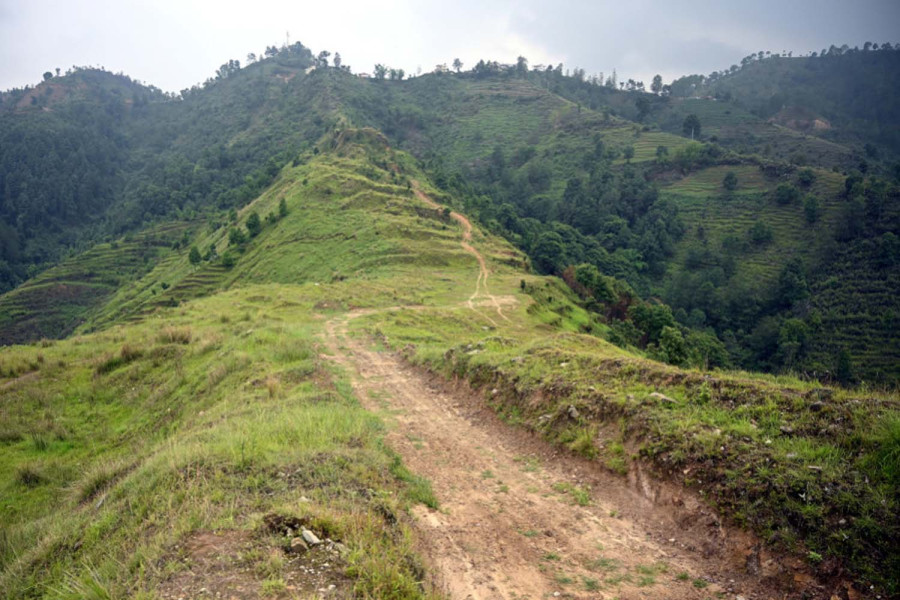National
House panel hands Patanjali land probe over to CIAA
Lawmakers say they decided to write to the anti-graft commission without completing their study, as the latter is already investigating the case.
Post Report
The Public Accounts Committee on Thursday decided to forward its incomplete report on the Patanjali land case to the Commission for Investigation of Abuse of Authority (CIAA), arguing the latter has already taken up the investigation.
Following complaints that then Madhav Kumar Nepal government had illegally authorised Patanjali Yogpeeth and Ayurved Company Nepal, owned by Indian yoga guru Ramdev, to purchase lands in Karvepalanchok district, the parliamentary committee had constituted a panel led by Nepali Congress lawmaker Sanjay Gautam to study the matter. Though it had done some study and collected evidence, it was not complete.
However, the PAC decided to write to the constitutional anti-graft body for further investigation.
“A report has been prepared following inquiries with the concerned ministries and other stakeholders,” said Rishikesh Pokharel, chairperson of the committee. "It has been decided to recommend the case to the CIAA for further investigation and necessary action.”
The members of the Gautam-led panel say they decided to write to the CIAA without completing the study, as the constitutional commission was already investigating the matter in full swing.
“We thought why should the committee invest more time in the matter that the CIAA has already taken up?” Lekh Nath Dahal, a member of the panel, told the Post. He said the PAC will forward the evidence it has collected to the investigating body. It had gathered the information from the Ministry of Land Management, Cooperatives and Poverty Alleviation and other entities.
If the claim of the study team members is anything to go by, the Nepal government breached law by allowing Pantajali to procure land more than the set ceiling. On February 1, 2010, Nepal’s Cabinet approved the purchase of 815 ropanis of land in Kavre under a land ceiling exemption for operating an Ayurvedic university, research centre, yoga hall, Ayurvedic medicine factory, herbal farming and a cow farm.
Soon after, Patanjali purchased over 593 ropanis of land in the former Sangha, Nasikathan, and Mahendra Jyoti Village Development Committees—now under Banepa Municipality in Kavre. However, within just two and a half months, Patanjali sold 353 ropanis and 15 aana of the land, to Kasthamandap Business Homes Pvt Ltd, by securing a Cabinet decision that violated land-related laws.
“The decision is malicious prima facie. Allowing the sale of the land less than two months after its purchase is illegal,” Amresh Kumar Singh, another team member, told the Post. “Not just the Nepal cabinet, then-secretary Chhabiraj Pant [who later became minister in the Khil Raj Regmi government] is dubious,” Singh said the Nepal government had transferred the director general at the Department of Survey, who had refused to act as per its direction.
The Nepal cabinet had also approved the purchase of land under ceiling exemption—75 bighas (1 bigha equals 0.677 hectares) in Dang, 300 ropanis in Lamjung, 250 ropanis in Syangja, 15 bighas in Chitwan, 25 bighas in Dhanusha, 150 ropanis in the Kathmandu Valley, and 40 bighas in the Bara-Parsa area—within five years. However, no investigation has been carried out into the transactions involving the other plots approved with ceiling exemption.
The CIAA has already recorded Nepal’s statement on the matter and summoned Ramdev and his associate Acharya Balkrishna for questioning over the alleged misappropriation of land. Both have refused to appear, citing local representative Shaligram Singh as solely responsible for dealings for land purchased in Banepa, Kavre.
Patanjali Yogpeeth Nepal, a non-profit registered in January 2008, has Ramdev, Balkrishna, Shaligram, Rajendra Singh, and Umesh Sarraf as proprietors.
Singh, a former chair of the Nepal Engineering Council appointed in the Nepali Congress quota, is a local agent of Pantanjali.




 10.12°C Kathmandu
10.12°C Kathmandu














